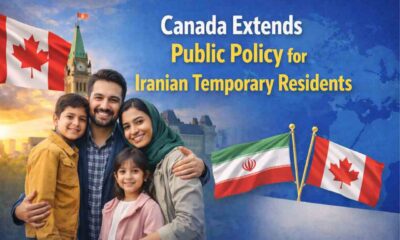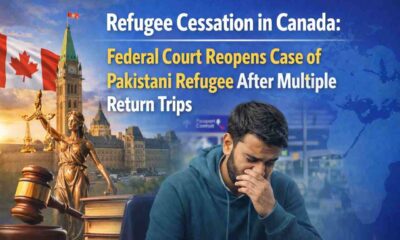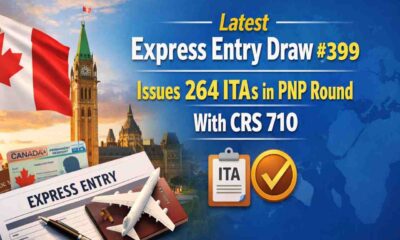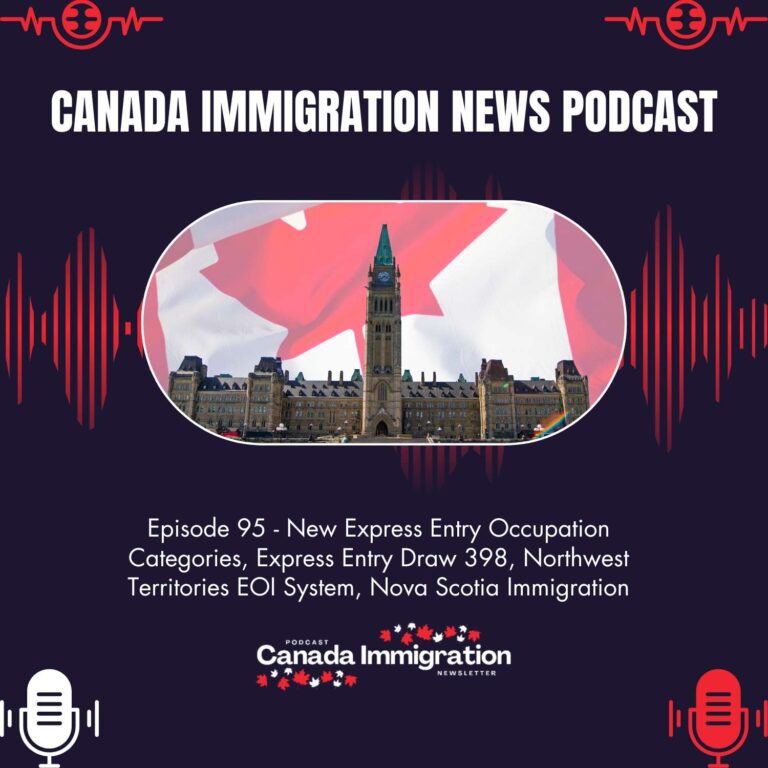Immigration Announcement
Canada Expands Opportunities for French-Speaking Students Under the Francophone Minority Communities Student Pilot

Canada has introduced a new public policy for French-speaking foreign nationals under the Francophone Minority Communities Student Pilot (FMCSP), a landmark initiative designed to attract and retain French-speaking international students to postsecondary institutions outside Quebec.
This policy represents a key part of Canada’s Francophone Immigration Strategy, which aims to restore and grow the demographic weight of Francophone and Acadian minority communities. By focusing on accessibility, equity, and inclusivity, the government is creating new opportunities for students from French-speaking countries, especially in Africa, the Middle East, and the Americas.
Purpose of the Francophone Minority Communities Student Pilot
The FMCSP was created by Immigration, Refugees and Citizenship Canada (IRCC) to support the Official Languages Act and promote linguistic and cultural diversity in Canada.
Through this pilot, IRCC hopes to:
- Encourage French-speaking students to study in designated learning institutions (DLIs) outside Quebec.
- Reduce study permit refusal rates for applicants from historically underrepresented regions.
- Facilitate smoother access to education in French and expand opportunities for permanent residency.
- Strengthen Francophone minority communities by ensuring their long-term sustainability.
The initiative will attract students pursuing programs taught primarily in French, helping Canada meet both its educational and demographic goals.
Eligibility Requirements for French-Speaking Applicants
Foreign nationals can apply under this public policy if they meet the following eligibility conditions:
Group A – Primary Applicants
Applicants must:
- Apply for a study permit before entering Canada under section 216 of the Immigration and Refugee Protection Regulations (IRPR).
- Be citizens of Francophone countries with historically high study permit refusal rates (60% or higher).
Eligible Regions Include
- Africa: Cameroon, Morocco, Senegal, Ivory Coast, Madagascar, Niger, Tunisia, Mali, and others.
- Middle East: Egypt, Lebanon.
- Americas: Haiti, Dominica, Saint Lucia.
They must also:
- Hold a Letter of Acceptance from a participating DLI that has signed an agreement with IRCC under FMCSP.
- Enroll in a full-time, postsecondary program of at least two years, taught primarily in French (more than 50% of courses).
- Provide proof of French language proficiency—a minimum of NCLC level 5 in all four skills (reading, writing, listening, and speaking).
- Demonstrate sufficient financial resources for tuition, travel, and at least 75% of the Low Income Cut-Off (LICO) for their area of study.
- Be admissible to Canada, with no criminal or medical inadmissibility concerns.
Group B – Family Members
Family members of eligible students can apply for:
- A work permit,
- A study permit, or
- A temporary resident visa.
This allows families to accompany students and build a foundation for long-term settlement in Canada.
Key Exemptions Under the New Public Policy
To make the process smoother, IRCC has introduced several policy exemptions for applicants under FMCSP. These include waiving requirements related to proving:
- Intent to leave Canada at the end of the study period.
- Dual intent restrictions under section 22(2) of the Immigration and Refugee Protection Act (IRPA).
- Temporary resident visa departure assurances under section 179(b) of the IRPR.
This means that eligible students are not required to demonstrate that they will return home after their studies, acknowledging that the FMCSP encourages permanent settlement within Francophone communities.
Application Caps and Timelines
IRCC has introduced a controlled intake to ensure efficient processing and quality outcomes.
| Application Period | Maximum Accepted Applications (Group A) |
| Aug 26, 2024 – Aug 25, 2025 | 2,300 |
| Aug 26, 2025 – Aug 25, 2026 | 2,970 |
Applications exceeding the annual cap or submitted outside these dates will not be processed. This temporary public policy replaces the one signed on August 13, 2024, and will remain in effect until August 25, 2026, or until the cap is reached.
Pathway to Permanent Residency for French-Speaking Students
A unique feature of this initiative is its connection to a temporary-to-permanent residence (TR to PR) pathway. French-speaking students who complete eligible programs under the FMCSP can transition to permanent residency through a complementary policy designed for graduates of Francophone institutions outside Quebec. This approach supports Canada’s vision of retaining French-speaking talent who contribute to the labour market and the cultural vitality of minority communities.
Benefits for Francophone Minority Communities
The Francophone Minority Communities Student Pilot not only benefits students but also strengthens communities across Canada.
Key Advantages Include
- Filling labour market gaps in healthcare, education, and skilled trades.
- Promoting French-language education and cultural continuity.
- Supporting regional population growth outside major urban centres.
- Encouraging bilingualism and multicultural integration.
IRCC’s approach reflects a long-term investment in both human capital and the social fabric of Canada’s Francophone regions.
For years, French-speaking students from Africa, the Middle East, and the Caribbean faced high study permit refusal rates, limiting their access to Canadian education. This new policy directly addresses those disparities, creating a more equitable and transparent process. It also aligns with Canada’s broader immigration goals, welcoming diverse talent, fostering inclusion, and ensuring sustainable growth across all provinces and territories.
Canada’s Commitment to Francophone Growth
The public policy for French-speaking foreign nationals applying for study permits under the Francophone Minority Communities Student Pilot marks a significant step in building a stronger, more inclusive Canada. By offering a pathway from study to permanent residency, this initiative gives talented students from around the world an opportunity to contribute to Canada’s linguistic diversity and economic success. For French-speaking students dreaming of studying and building a life in Canada, this program represents a clear and supportive gateway to opportunity.
Stay connected with Canada Immigration News for the latest updates on Francophone immigration policies, study permits, and permanent residency pathways designed to help you succeed in Canada.























